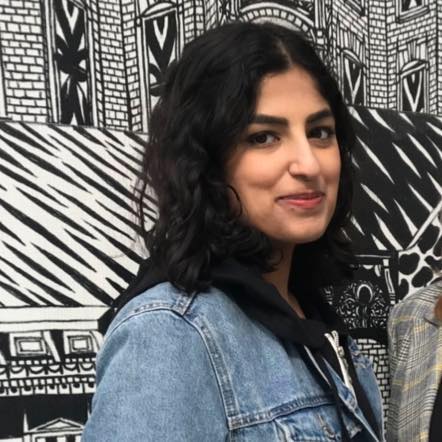Leslie Blanco, a 2007 fiction alum, was recently featured in Hunger Mountain. Read an excerpt of Blanco’s story below:

My Wish for You in the Land of the Dead: a Cuban Sandwich
See what things have come to? See? Yesterday, I very nearly fell asleep in the grocery line while waiting to buy you a ham.*
You don’t like ham.
Neither do I.
But it’s the tradition.
Every year, the ham “provokes” you. “Como me provoca!” Every year you say: “It’s just not right without the ham.” Pink. Shiny. Glazed. You like to add pineapples to it, affixed helter-skelter with the kind of tooth picks that have red plastic fringes on the ends. “There. Now it looks like Chiquita Banana.” You say that every time. Also: “Poor Carmen Miranda. Dead of heart attack at forty-seven. She wore herself out.”
Without the ham, you tell me, the side dishes don’t look right. “A flower with no center,” you say. “The petals are pretty, but …” Shrug.
There are doilies, of course. To make the home-made food look prettier, and the store-bought food look home-made. A little trickery of yours. A little brujeria, your every-day sorcery.
And the easy-to-wash polyester tablecloth, that’s there too, off-white with a border of embroidered flowers in every neon color of the rainbow. More Chiquita Banana.
None of this ever varies. The pineapple slices must be Dole. No other brand. “No se te ocura!” Don’t let it occur to you! As if the pineapples will be second rate. Imported from the wrong place. Unreliable. “Niña! There’s enough insecurity in the world without having to go and try new brands,” you say. “Not that they aren’t capable of changing what goes in the can without so much as changing the label.” They. You say that a lot. Who’s they? “The scoundrels. The sinverguenzas. You know they mess with the sugar in this country, don’t you? In Cuba, I can tell you for a fact, the sugar was sweeter.”
I never believed you, about the sugar, until that year I visited a friend in Mexico. My standard two spoonfuls in my coffee, and I had to pour it down the drain. Too sweet. And a few years back I met a lobbyist, or a regulator, some politically inclined person who worked for the sugar industry. You are right. You are right! They mess with the sugar. They alter the volume chemically. “So we’ll have to use more and pay again,” you say, “for what should have been enough for the recipe the first time.”
You are absolutely right.
Read the rest of this story here: https://hungermtn.org/my-wish-for-you-in-the-land-of-the-dead-a-cuban-sandwich-by-leslie-blanco/









 BEWILDERNESS is the first novel from fiction Alum Karen Tucker. It is new in June from Catapult. Below is an excerpt:
BEWILDERNESS is the first novel from fiction Alum Karen Tucker. It is new in June from Catapult. Below is an excerpt: 